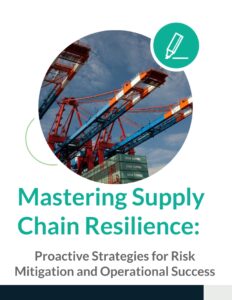Beyond the Brand: Unlocking Unique Technology Solutions for Tailored Business Success
Technology has become indispensable in the realm of daily business operations. As technology companies aggressively innovate, launching new products and services at a rapid pace, the allure of sticking with mainstream brands that have garnered worldwide recognition is strong. Yet, as a forward-thinking business leader, recognizing the importance of exploring alternative solutions is paramount. In this comprehensive blog post, I will delve into the reasons why it’s essential for business leaders to venture beyond the confines of mainstream technology. This exploration is not just about being different for the sake of it, but about finding technology solutions that are uniquely suited to meet the specific needs of your business, potentially offering better efficiency, cost savings, and customization. I will also highlight several robust alternative options for common technology platforms in critical business areas such as Customer Relationship Management (CRMs), Enterprise Resource Planning (ERPs), and Human Capital Management (HCMs), providing insights into their advantages and how they can elevate your business operations to new heights.
First and foremost, it’s critical to acknowledge that many mainstream technology companies are often hindered by outdated UI/UX designs. Despite these companies possessing significant marketing budgets, allowing them to dominate the market presence, they may not always deliver the best user experience. This negligence towards optimizing for customer satisfaction can markedly tarnish a brand’s reputation, leading to a decline in user loyalty and possibly affecting long-term profitability.
This situation opens a window of opportunity for business leaders who are willing to explore beyond the conventional choices. By considering alternative options, they have the chance to uncover emerging technology brands that place a high priority on user experience. These brands, though perhaps not as widely recognized, offer innovative solutions that can match or even surpass the functionality of established names like Salesforce or Dynamics. Companies such as Creatio stand out in this regard, offering products that not only rival the capabilities of mainstream software but do so with a user-centric approach that significantly enhances ease of use.
The focus on user experience extends far beyond the mere simplification of software interfaces. It’s about acknowledging and valuing the considerable time and effort users dedicate to mastering these platforms. When business leaders opt for technology partners who place a premium on UI/UX, they’re not just enhancing the interface; they’re fundamentally transforming their operational efficiency and boosting both employee and customer satisfaction. In today’s competitive landscape, where a superior user experience can set companies apart, the importance of dedicating time and resources to find and invest in technology that embodies these principles cannot be overstated. This strategic focus on user experience ensures that businesses are not only meeting the current demands of their users but are also poised to adapt to future expectations, thereby securing a lasting competitive edge.
Secondly, business leaders must actively explore alternatives to mainstream brands when it comes to customer relationship management (CRM) tools. CRM plays a critical role in the success of any business, facilitating effective interactions with customers and fostering strong relationships. It’s important to recognize that the CRM needs of businesses vary widely, making a one-size-fits-all solution impractical. While Salesforce is undoubtedly the most well-known player in the CRM space, its prominence doesn’t necessarily mean it’s the best choice for every company. Emerging smaller brands like AgileCRM, Creatio, or Pipedrive are making waves by offering specialized features tailored to different business needs, often at more competitive prices than their larger counterparts. These alternatives can provide enhanced customization, user-friendly interfaces, and innovative technologies that may align more closely with a company’s specific operational requirements and financial constraints. By dedicating time to research and evaluate these options, business leaders can make a more informed decision, choosing a CRM system that not only fits their budget but also perfectly aligns with their strategic objectives, ultimately leading to improved customer satisfaction and business growth.
Thirdly, it’s vital to explore alternative options to mainstream Enterprise Resource Planning (ERP) systems. These systems play a pivotal role in helping businesses efficiently manage their resources, ensuring operational success. Mainstream ERP providers, like SAP and Oracle, are renowned for their comprehensive solutions but often come with high costs and complex implementation processes. This can be a significant barrier for small to medium-sized enterprises looking to streamline their operations without breaking the bank.
By exploring the offerings of smaller, less well-known ERP providers, such as Alexor and Brightpearl, businesses have the opportunity to discover cost-effective and easier-to-implement solutions that might not be immediately apparent. These alternatives often provide a level of agility and customization capabilities that larger, more established providers may lack, making them an excellent fit for the unique requirements of smaller businesses. Additionally, despite their smaller size, these providers still manage to deliver the essential functionalities that are critical for effective resource management. This includes comprehensive inventory management systems that allow for real-time tracking of stock levels, financial planning tools that facilitate accurate budgeting and forecasting, and customer relationship management features designed to enhance customer satisfaction and loyalty.
Choosing to explore these lesser-known options can lead to significant savings in both time and money for businesses. The simpler implementation process of these systems, as opposed to their more complex and bulky counterparts, can reduce the time it takes for a company to get up and running with a new ERP system. Moreover, the potential for customization allows businesses to tailor the software to their specific needs, avoiding the cost of unnecessary features that are often bundled with solutions from larger providers. In the long run, investing the effort to consider these alternatives can ensure that a company has access to the tools it needs to manage its operations effectively, while also supporting its growth and adaptation in a constantly changing business environment.
Finally, it’s crucial for business leaders to explore alternative options for HR management. While Workday might be the first brand that springs to mind due to its widespread recognition, the market is teeming with other valuable HR software options that merit consideration. For instance, BambooHR and iSolvedHCM stand out by offering comprehensive HR management tools that rival the capabilities of mainstream software solutions, but at a fraction of the cost. These alternatives can be particularly appealing for small to medium-sized businesses looking to optimize their HR operations without breaking the bank. Delving into the features and benefits of different HR software can reveal hidden gems that offer tailored solutions to meet the unique needs of a business. By dedicating the time to thoroughly explore and evaluate these alternative HR software options, businesses not only stand to save significant amounts of money but also potentially enhance the efficiency and effectiveness of their HR operations.
As a business leader, embracing an innovative mindset is not just beneficial; it’s absolutely crucial, particularly when it comes to evaluating technology solutions for your company. The landscape of technology is vast and rapidly evolving, making it essential to look beyond mainstream brands for your tech needs. While these popular options might seem like the safe choice, relying solely on them can often result in settling for outdated UI/UX designs and incurring significantly higher costs than necessary. Furthermore, these mainstream solutions, despite their widespread adoption, might not always provide the best value or the most up-to-date features. It’s important to consider a variety of options, including emerging technologies and niche products, to ensure that you’re making the most informed decisions possible. This approach not only can lead to cost savings but also to the discovery of innovative tools that offer a competitive edge, enhancing your company’s efficiency and impact in the marketplace.
By casting a wider net and exploring alternative brands, particularly in critical areas such as Customer Relationship Management (CRM), Enterprise Resource Planning (ERP), and Human Resources (HR), businesses can uncover hidden gems that provide functionalities and user experiences on par with, or even superior to, those of mainstream brands. These alternative solutions not only tend to be more cost-effective but also can introduce innovative features and flexibility that mainstream options lack.
Taking the time to carefully evaluate these alternatives can lead to significant benefits for the organization. For instance, choosing the right technology solutions can greatly enhance operational efficiency, allowing tasks to be completed more swiftly and effectively. In addition, this careful selection process can lead to greater cost savings, as it helps identify the most cost-effective solutions that meet the organization’s needs without unnecessary expenditure. Furthermore, a well-considered technology investment can significantly improve the user experience for both employees and customers. For employees, it can make daily tasks less cumbersome and more enjoyable, leading to higher job satisfaction and productivity. For customers, it ensures smoother interactions with your services or products, enhancing their overall satisfaction and loyalty. This thoughtful approach to technology investment not only yields immediate benefits but also fosters a culture of efficiency and continuous improvement within the organization, promoting long-term success and adaptability in an ever-changing business landscape.
So, before you commit to the popular choice and jump on the mainstream technology bandwagon, give yourself the opportunity to explore all the alternatives out there. You may be pleasantly surprised by what you find. If the process seems daunting or you’re unsure where to start, our sales and demo team is always here to help. We can provide comprehensive demonstrations of any of our partner platforms, guiding you through the features and benefits to help you make the best decision for your business. Reach out to us to set up a demo and start exploring the possibilities today.






